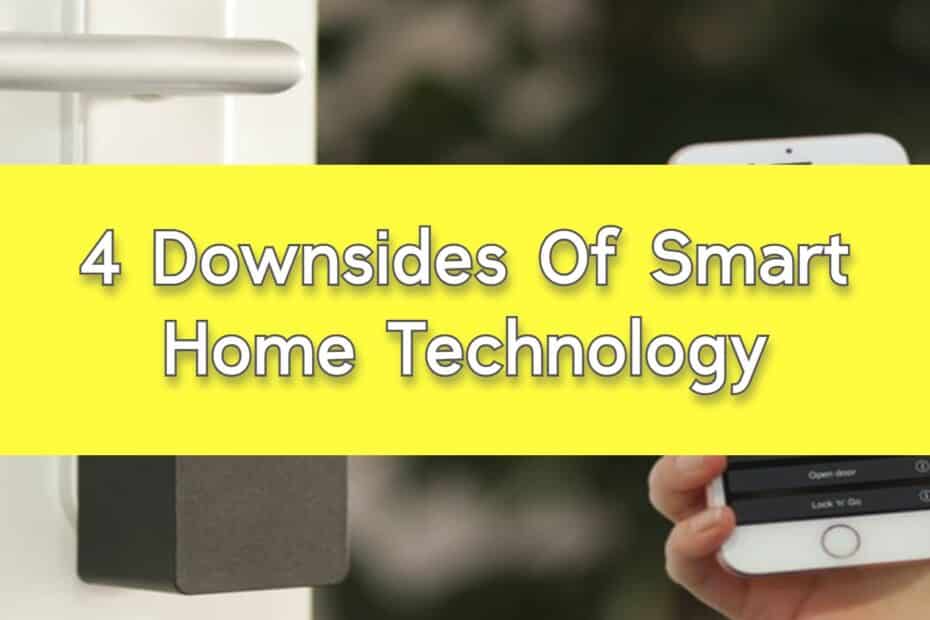As technology gains traction in today’s lifestyle, homeowners see the need to own smart home devices. These are now in great demand.
The rising trend of acquiring smart home technology products has done a lot to convert everyone’s personal space into something more. Nowadays, these modern systems have become a staple in people’s homes, to the point of owning not just one device but multiple ones connected to create a vast wireless network that caters to all your house needs. Imagine the impact it has on a person’s productivity in the house. Cost is not even that much of an issue since the overall savings you could get from this system would eventually outweigh the expenses incurred for running your physical wirings.

Considering the role that these devices play in the home, it is only natural that one should be well-oriented to the benefits this technology brings. And with the good points, there are also the risks that go with its prevalent usage.
Incompatibility With Your Home System
The issue of the fragmentation of technology in smart homes has long been under consideration by smart manufacturers. For smart home consumers, it could be pretty confusing to be around so many kinds of technology. So to address the problem, a gateway is needed to act as a central hub. The idea of having a standardized system is actually helpful if you have numerous devices in your home. However, this has led to the rise of another issue for smart home technology users: compatibility.
Smart brands intentionally create devices that make it difficult for consumers to rely on a competitor’s smart home control system. To cite an example, a famous manufacturer would most likely make sure their own products are not agreeable with systems apart from theirs. By doing so, the consumer will be left with no choice but to purchase from their own smart home platform. This strategy also reduces the chances of success for imitations and cheap counterparts. A helpful tip for smart home users: best to have one common brand for their devices, so they have no need for troubleshooting.
Vulnerability to Hackers
The introduction of smart technology to homes is making experts concerned about the firmware and software’s security. The probability of someone hacking into your system is one that needs to be combatted. That is why manufacturers and network engineers are working on setting security standards to discourage such data privacy acts.
Most hackers and cyberattacks target cloud-based devices as these are commonly used for storage and unsecured transmission of information. Knowing this, smart home technology companies are strongly encouraging homeowners to learn more about these devices. Those that make use of encryption and internal storage, in particular, are given emphasis since these pose a high-level risk to the smart user.
The set-up of your router security inside your smart home should be strengthened to primarily serve as a front defense against any form of virtual attack. Also, there is a possibility that any of your smart home devices could also be a weak link. Thus, you need to respond to this threat by ensuring that all software updates have been done. It might be a good idea as well to install your own home network firewall. If things get too complicated for you, you could opt to hire a smart home security consultant who can provide the support you need for your smart home products.
Battery System Inconsistencies
Most smart home technology products are now run by batteries, given the fact that they are wireless. Just like any other battery-operated machine, you have to ensure that you never run out of it. Some manufacturers advertise their devices to have a certain duration of battery life. However, this could be considerably less in reality for a number of reasons, such as the frequency of use or the coverage of your home Wi-Fi.

Wireless charging may make things easier for the homeowners yet without caring about your battery juice, it might lead to hazards and potential danger in the house. Imagine the consequences of a non-operational security camera or a weak-powered smoke detector.
Considering what was on the tech market years ago and comparing it to now, the new generation is lucky to have such smart wireless devices available to them. In fact, in spite of the issue with the battery life of these gadgets, so long as you have some spare ones handy, smart home users can get a huge advantage. Unlike those non-users, they can run things in the household more smoothly.
Freedom to Access Information
The ever-growing concern for privacy has somehow influenced smart home technology consumers to think twice before purchasing an addition to their smart homes. In the fusion of physical reality and the virtual world, living spaces have been affected greatly. When talking about the efficiency and convenience that smart appliances are providing people, there are some who believe that some smart home technologies are not yet fully developed and mature to handle such privacy issues.
Certain apps and gadgets are constantly working on giving you the optimal user experience. In doing so, they may ask permission to gain access to your other apps and even personal information. A typical user, unfortunately, does not really care much about the terms of agreement presented by the app. No one ever considers the extent of security threats related to allowing these devices access to your data.

Conclusion
Smart home technology has taken a big leap forward towards offering more comfortable living, yet it cannot be denied that there are challenges presented by its use. It is true that these smart manufacturers are making our lives less of a hassle, and it is also true that wireless connectivity increases the efficiency of our tasks. However, these advantages should be weighed closely against the risks it could bring. What is important for homeowners to remember is they should discern when smart home technology could lead to more harm than good.
